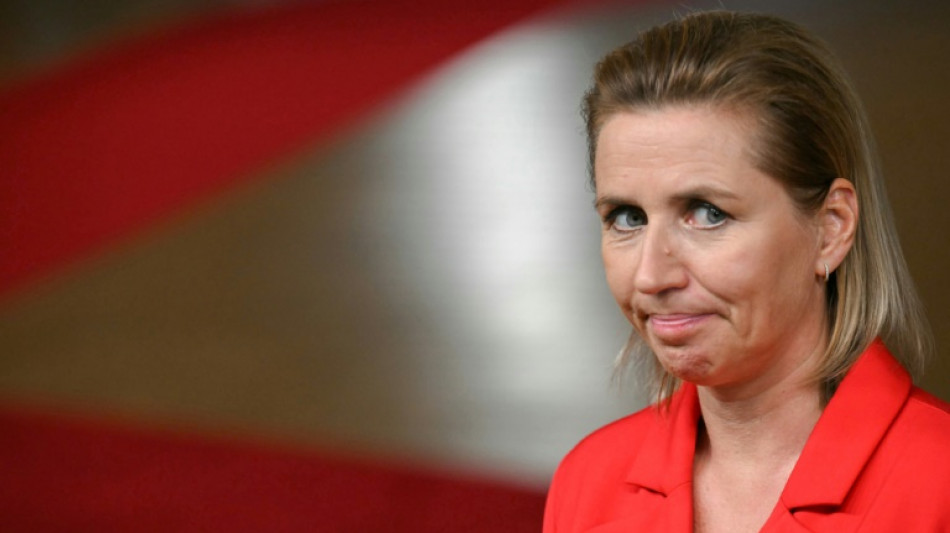
-
 South Africa spinner Subrayen cited for suspect bowling action
South Africa spinner Subrayen cited for suspect bowling action
-
Menendez brothers face parole board seeking freedom after parents murders

-
 Weaponising the feed: Inside Kenya's online war against activists
Weaponising the feed: Inside Kenya's online war against activists
-
Africa could become 'renewable superpower', says Guterres
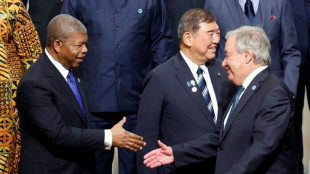
-
 Suspended Thai PM in court for case seeking her ouster
Suspended Thai PM in court for case seeking her ouster
-
Errani, Vavassori retain US Open mixed doubles title in revamped event

-
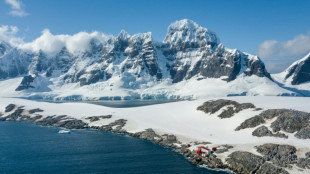 Surging tourism is polluting Antarctica, scientists warn
Surging tourism is polluting Antarctica, scientists warn
-
Ten Hag hoping for fresh start at rebuilding Leverkusen

-
 Five players to watch at the Women's Rugby World Cup
Five players to watch at the Women's Rugby World Cup
-
Suarez fills Messi void as Inter Miami beat Tigres 2-1

-
 Asian markets creep up as investors await key speech
Asian markets creep up as investors await key speech
-
New Zealand spy service warns of China interference
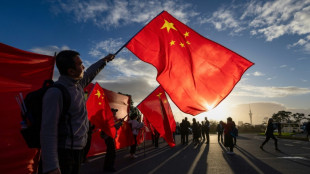
-
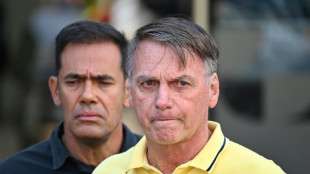 Brazil police accuse Bolsonaro and son of obstructing coup trial
Brazil police accuse Bolsonaro and son of obstructing coup trial
-
Israel approves major West Bank settlement project
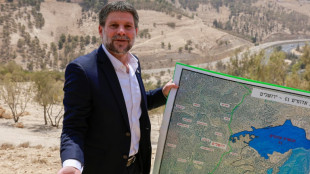
-
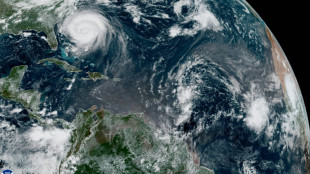 North Carolina braces for flooding from Hurricane Erin
North Carolina braces for flooding from Hurricane Erin
-
Pensioners on the frontline of Argentina's fiery politics
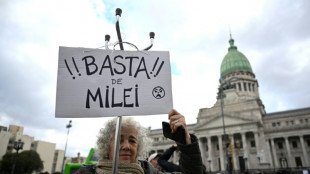
-
 'Curly is beautiful': Tunisian women embrace natural hair
'Curly is beautiful': Tunisian women embrace natural hair
-
Sudanese lay first bricks to rebuild war-torn Khartoum

-
 Newcastle host Liverpool amid Isak stand-off, Spurs test new-look Man City
Newcastle host Liverpool amid Isak stand-off, Spurs test new-look Man City
-
Texas Republicans advance map that reignited US redistricting wars

-
 South Africa spinner Subrayen cited for suspect action
South Africa spinner Subrayen cited for suspect action
-
Meme-lord Newsom riles Republicans with Trump-trolling posts

-
 Messi ruled out of Miami's Leagues Cup quarter-final v Tigres
Messi ruled out of Miami's Leagues Cup quarter-final v Tigres
-
Trump raises pressure on Fed with call for governor to resign
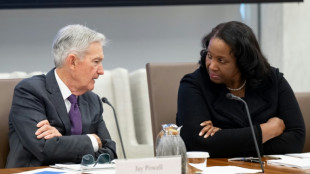
-
 Trump flirts with Ukraine security, with narrow margins
Trump flirts with Ukraine security, with narrow margins
-
US sends three warships near Venezuela coast

-
 Celtic held by Kairat Almaty in Champions League play-off
Celtic held by Kairat Almaty in Champions League play-off
-
North Carolina braces for flooding from 'Enormous' Erin
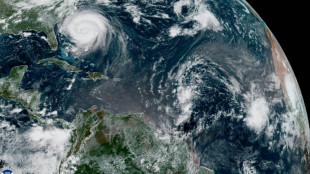
-
 Arsenal could hijack Spurs' bid for Palace star Eze - reports
Arsenal could hijack Spurs' bid for Palace star Eze - reports
-
Namibian Shalulile equals South African scoring record

-
 PlayStation prices rise as US tariffs bite
PlayStation prices rise as US tariffs bite
-
Games publisher kepler on cloud nine after smash hits

-
 Thirteen arrested over murders of Mexico City officials
Thirteen arrested over murders of Mexico City officials
-
Seville storms past Lyles for Lausanne 100m win

-
 India test-fires nuclear-capable ballistic missile
India test-fires nuclear-capable ballistic missile
-
Google unveils latest Pixel phones packed with AI

-
 Brazil records 65 percent drop in Amazon area burned by fire
Brazil records 65 percent drop in Amazon area burned by fire
-
Threat from massive western Canada wildfire eases

-
 England women's rugby coach Mitchell says World Cup favourites' tag 'irrelevant'
England women's rugby coach Mitchell says World Cup favourites' tag 'irrelevant'
-
US ramps up attack on international court over Israel

-
 Palace transfer targets Eze and Guehi to start in European tie
Palace transfer targets Eze and Guehi to start in European tie
-
North Carolina coasts prepare for flooding as Erin churns offshore

-
 India test-fires ballistic missile ahead of US tariff hike
India test-fires ballistic missile ahead of US tariff hike
-
Antarctic climate shifts threaten 'catastrophic' impacts globally

-
 Tall ships sail into Amsterdam for giant maritime festival
Tall ships sail into Amsterdam for giant maritime festival
-
Trump raises pressure on central bank, calls for Fed governor to resign

-
 Woods to head PGA Tour committee to overhaul golf
Woods to head PGA Tour committee to overhaul golf
-
Google packs new Pixel phones with AI

-
 How Europe tried to speak Trump
How Europe tried to speak Trump
-
Stock markets diverge awaiting Fed signals as tech sell-off deepens


Denmark to push for stricter EU migration policies
Denmark's strict migration policies have slowly spread across Europe and the country will now push for harsher EU-wide regulations during its upcoming EU presidency, including on asylum handling and legal appeals.
Migration policy "is linked to security, that is to say that we need a Europe that is safer, more stable and robust, and that isn't really the case if we don't control the flows to Europe," Denmark's European Affairs Minister Marie Bjerre said as she presented the country's priorities for its EU presidency, which it takes over from Poland on July 1.
Danish Prime Minister Mette Frederiksen hopes to build EU consensus on externalising asylum procedures outside Europe, and restricting the scope of rulings from the European Court of Human Rights.
She set the tone during a recent visit to Berlin.
"We need new solutions to reduce the influx to Europe and to effectively send back those who don't have the right to stay in our countries," she said at a press conference with German Chancellor Friedrich Merz, who applauded the Danish "model".
Denmark, where the number of inhabitants of foreign origin has soared from 3.3 percent in 1985 to 16.3 percent in 2025, says it needs to limit the number of immigrants in order to safeguard its generous cradle-to-grave welfare system.
At the same time, the need for foreign labour has surged, with the number of work permits doubling in less than a decade, though these can be swiftly revoked.
- 'Schizophrenic' situation -
Refugees in Denmark are entitled to a one-year renewable residency permit, and they are encouraged to return home as soon as authorities deem there is no longer a need for a safe haven.
"Refugees are expected to integrate while also being prepared to leave at anytime... a kind of contradictory or schizophrenic situation," researcher Marie Sandberg, the head of the Centre for Advanced Migration Studies at the University of Copenhagen, told AFP.
"As recent research shows, the increased focus on return policies and temporary protection, along with high demands for getting permanent residency, create a very, very difficult integration landscape for newcomers into Danish society," she added.
Denmark made headlines in 2020 when it revoked residency permits for 200 Syrians, deeming the situation in Damascus no longer justified a Danish residence permit.
Since her election to the head of the centre-left Social Democrats 10 years ago, Mette Frederiksen has shifted her party's migration policy far to the right, in line with that of preceding right-wing governments backed by the far right.
She has repeatedly called non-Western immigration Denmark's "biggest challenge".
In 2024, she expressed support for an MP who alleged that some well-integrated immigrants were "undermining" Danish society.
"We are a sociable and relaxed country culturally, but for some reason Muslims have been seen as a kind of threat to this liberal culture," lamented Michala Bendixen, head of the Refugees Welcome organisation.
- Externalising asylum -
Championing a "zero refugee" policy, Denmark is keen to externalise the asylum process to a country outside Europe.
In 2024, the country accepted 860 refugees, 13 times fewer than in 2015.
Two years ago, the government halted its plans to process asylum requests abroad -- possibly in Rwanda -- and keep refugees there if their applications were approved, in order to try to find a joint solution with the European Union.
While all similar efforts in European countries have so far failed, "there will be a European attempt to do something on the subject" during the Danish EU presidency, Bendixen said.
Denmark also recently joined Italy and seven other countries to seek a reinterpretation of the European Convention on Human Rights to allow for changes to migration policy, arguing that the text sometimes protects "the wrong people."
"We used to be proud of being one of the first countries to sign the 1951 UN Refugee Convention, and we've also been part of the UNHCR resettlement scheme since the late 1980s. However ... Denmark seems to be ready to test the (limits of the) conventions," Sandberg said.
Bendixen said those efforts were now "undermining the whole mindset of Europe".
H.Jarrar--SF-PST

